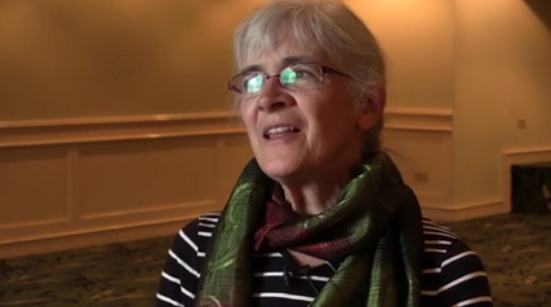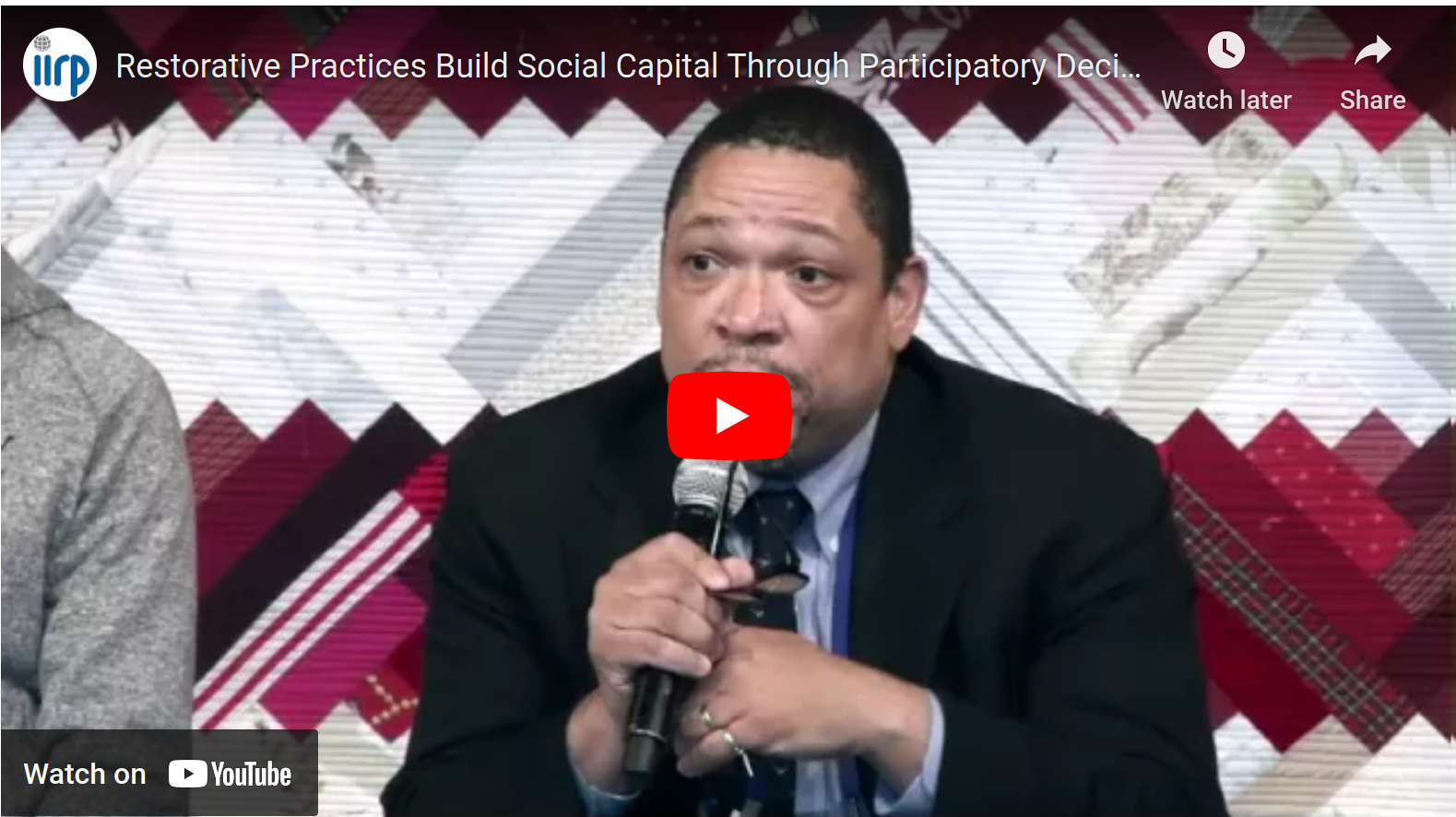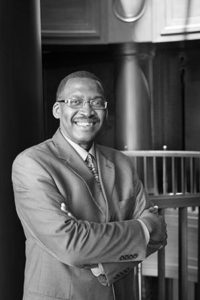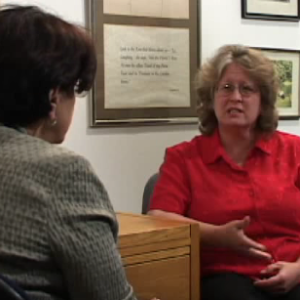News & Announcements
- Details
- Written by Steve Grieger
Kay Pranis discusses a restorative process for how we can heal racial wounds based on an understanding victims' needs. Pranis is a peacemaking circles expert who was a featured presenter at the IIRP Latinoamérica's Conference this June.
- Details
- Written by Joshua Wachtel
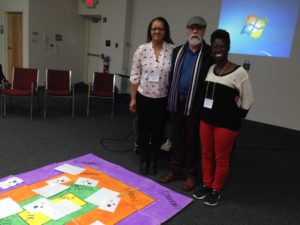 Rick Kelly, a professor in the Child and Youth Care (CYC) program at George Brown College (Toronto) and an IIRP alumnus, with students Sewsen Ikbu (left) and Amy Taylor at the 19th IIRP World Conference.
Rick Kelly, a professor in the Child and Youth Care (CYC) program at George Brown College (Toronto) and an IIRP alumnus, with students Sewsen Ikbu (left) and Amy Taylor at the 19th IIRP World Conference.
Rick Kelly, a professor in the Child and Youth Care (CYC) program at George Brown College (Toronto), has created a hub for restorative practices to support practical learning and social innovation by students at his college. Both students and the local community are benefitting from the hub, which is introducing restorative concepts and solutions to schools and neighborhoods.
- Details
- Written by IIRP Staff
Breakout Sessions
- Restorative Theater Performance — Xochitl Avalos, Martin Porto (powerpoint)
- Should We or Shouldn’t We? Integrating Restorative Practices with Bullying Prevention and Intervention Practices (English) — Lee Rush, M.Ed., Jane Riese, L.S.W. (powerpoint)
- The Best Is Yet to Come: Unlocking Restorative Practices True Potential (English with Spanish interpretation) — Terry O’Connell (powerpoint)
- Asking Great Questions for Circles (Spanish) — Miguel Tello (powerpoint)
- Restorative Practices, Affect Script Psychology and Neurodiversity in Education (English) — Nicola Preston, M.A. (powerpoint)
- The Successes and Barriers in the Building of a Restorative School Community (Spanish) — Ana María Muñoz de Luna, Karla Gómez Aranda (powerpoint)
- A Restorative Journey into Latin America (Spanish) — Jean Schmitz (supplemental information)
- Mediation Counselling: A Method of Conflict Resolution for Restoring Families in Crisis (English) — Ann Diaz M.S.W. Dernielle Diaz (powerpoint)
- Restorative Practices in Community Life and Educational Communities (Spanish) — Maritza Alvarenga Chicas Marroquin (powerpoint, handout)
- Rethinking Story Retelling: What We Are Learning about Trauma Recovery (English) — Pepper Black (handout 1, handout 2, handout 3, handout 4, handout 5)
- Details
- Written by IIRP Staff
IIRP Director of Continuing Education Keith Hickman participated in a panel, Restorative Justice Now, at the Citizen University National Conference: WHO IS US? Race, Citizenship, and America Now, March 18-19, 2016. The discussion revolves around reducing suspensions and discipline disparities for students of color in schools. Hickman widens the context by pointing out how restorative practices build social capital through participatory learning and decision-making for staff and students. These practices hold the potential to transcend school and isolated programs to affect the wider community.
- Details
The International Institute for Restorative Practices (IIRP) is embarking on an unprecedented initiative to improve the lives of children and families in Detroit, Michigan, USA. By mobilizing a “whole-neighborhood” approach, individuals will be active stewards of their community. The goal of the program, “Toward a Restorative City: Focus on Schools and Sustainability for the City of Detroit,” is to embed restorative practices in neighborhoods, schools and systems. The Skillman Foundation is underwriting a multi-year grant in support, beginning with $250,000 for 2016.
- Details
- Written by John Braithwaite
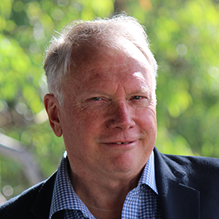 In this guest blog, Professor John Braithwaite, who leads the Peacebuilding Compared project and is the founder of RegNet School of Regulation and Global Governance at the Australian National University, discusses the parallels between Motivational Interviewing and restorative practices and describes a framework for understanding why these approaches work.
In this guest blog, Professor John Braithwaite, who leads the Peacebuilding Compared project and is the founder of RegNet School of Regulation and Global Governance at the Australian National University, discusses the parallels between Motivational Interviewing and restorative practices and describes a framework for understanding why these approaches work.
- Details
- Written by Joshua Wachtel
Motivational Interviewing (MI) is a collaborative, restorative dialogue process that supports people in identifying their goals and achieving positive changes in their lives. Practitioners in a wide range of settings — including juvenile justice, drug and alcohol recovery, health care, education and the workplace — are employing MI to help people discover for themselves what stops them from making progress, so they can move forward.
“It’s all about being authoritative without being judgmental,” says Dawn Schantz, Motivational Interviewing consultant for juvenile justice in the state of Pennsylvania. Instead of giving advice, in MI, the focus is on building rapport, then engaging people in conversations centered on identifying their own intrinsic reasons for wanting to live differently.
- Details
- Written by Joshua Wachtel
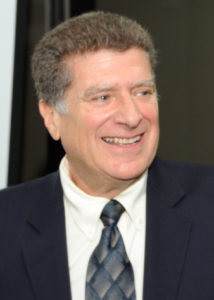 Ted Wachtel, founder of the International Institute for Restorative Practices (IIRP) Graduate School, who stepped down as IIRP president last summer, has launched a new website, Building a New Reality, as a platform for sharing his ideas about the implications of restorative practices in the areas of politics, governance and economics.
Ted Wachtel, founder of the International Institute for Restorative Practices (IIRP) Graduate School, who stepped down as IIRP president last summer, has launched a new website, Building a New Reality, as a platform for sharing his ideas about the implications of restorative practices in the areas of politics, governance and economics.
Wachtel says, “I’m doing a new video and text blog about restorative in some new areas that haven’t been discussed so much – restorative implications for politics and economics. I’m really interested in how to build a new reality in those areas. What I want to do is talk about things that are proposed, underway and longstanding that represent new possibilities.”
Wachtel will discuss ideas for revamping democracy to make it more responsive to the people rather than special interests. He also believes that people can reclaim some of the roles that have over time been ceded to government.
- Details
- Written by Joshua Wachtel
Dawn Schantz, Motivational Interviewing consultant for juvenile justice in the state of Pennsylvania, explains how the skill of motivational interviewing can simultaneously hold people to high expectations while also providing high support for helping them internalize their own motivations for change.
- Details
- Written by Joshua Wachtel
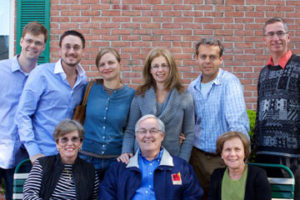 Sandy and Harry Strachan (front left and center), founders of the Strachan Family Foundation, are pictured with board members (including family) and executive director Miguel Tello (back right)
Sandy and Harry Strachan (front left and center), founders of the Strachan Family Foundation, are pictured with board members (including family) and executive director Miguel Tello (back right)
The Strachan Foundation is partnering with the Restorative Practices Foundation to fund its grantees to attend the IIRP Latinomèrica Conference in San Josè this June. This will allow representatives of nonprofit community leaders across Latin America to share and further their knowledge of restorative practices with each other and attendees from around the world.
The Strachan Foundation was founded by businessman and academic Harry Strachan to honor and advance the social investment side of the mission of his parents and grandparents, prominent Protestant missionaries in Latin America. In addition to their religious mission, they helped established schools, orphanages, media outlets and social services to support the “whole individual.”

Restorative Works Year in Review 2024 (PDF)
All our donors are acknowledged annually in Restorative Works.

